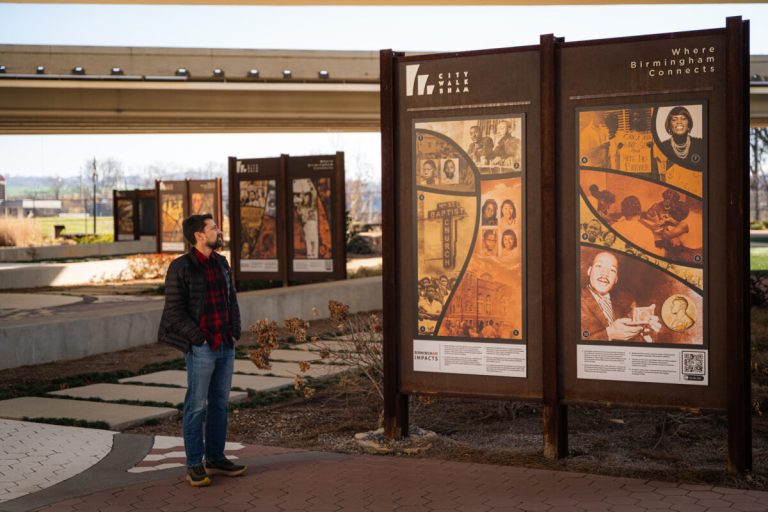See how United Ability continues to teach, care and love during the COVID-19 crisis
Reading time: 6 minutes
Sponsored

When the COVID-19 crisis started to grow nationwide, and schools, medical offices, and stores began to close, the first organization I thought about was United Ability here in Birmingham.
You see, United Ability serves nearly 6,000 children and adults with all types of disabilities in our community.
Assisting, teaching, caring and loving the children and adults in the organization is the job of over 190 people. I wondered—how are they going to do it?
Well, I’m proud to report they have found a way.
Staying connected with teleconferencing
Last week, I got to meet five remarkable United Ability staffers on ZOOM—Nicole Odrezin, Melissa Pouncey, Lenor Harrison, Alyssa Scharf, and Rebekah Waldrum.
It was ironic that we were all meeting via teleconference because that has been the leading innovation United Ability has adopted to keep its major programs alive and connected.
Here are their stories:
Ability Clinic

Nicole is director of the Ability Clinic, United Ability’s “one-stop shop” that focuses on providing comprehensive and coordinated care for persons with disabilities.
When the clinic was closed, Nicole reconnected with hundreds of patients and families by picking up the phone and calling them to set up a telehealth appointment with United Ability’s Medical Director, Dr. Charlie Law.
The staff at the clinic knew they had to act quickly to set up appointments.
“We had people crying on the phone to us. Parents were saying they couldn’t get in touch with their pediatricians, or they had surgeries for their kids that were scheduled that were now canceled,” said Nicole. “We realized very quickly that we needed to jump on it. Today we are already on our second week of telemedicine while other places are just getting started.”
By the beginning of April, 158 telemedicine appointments are scheduled, but more importantly, patients are being visited and treated and families supported.
Therapy Side of the Ability Clinic
When your job is visiting the homes of patients, the “stay at home” order caused by the COVID-19 crisis is traumatic.

Melissa works in the Ability Clinic as an outpatient speech therapist, as well as an early intervention speech therapist. Visiting homes and daycare centers is how her job works. She checks up on people and teaches therapies to parents and caregivers. In the midst of the COVID-19 crisis that has to be done via telemedicine.
“The families that I’m serving, they have kids that are non-verbal,” described Melissa.
“They have kids that struggle with mobility. They have kids that struggle with interaction and play, and I get to walk alongside them. I think telemedicine has been this unique opportunity to do this in a very different way. And I don’t know how I would be doing if I didn’t have the opportunity to be connected to my families.”

Because Melissa has to do her job remotely, she has to coach the parents via teleconferencing the activities and therapies that help their children rather than being hands-on. It’s different and challenging, but she is making it work.
“I think there’s this really unique space of being able to empower families to be their child’s therapist in a way that maybe we wouldn’t have been able to do without telehealth.”
LINCPoint—Having a “Dance Party”

Earlier this year, I wrote about Alyssa and Rebekah and their groundbreaking work with the Amazon Dot. They are not strangers to technology. But if you have ever visited the LINCPoint Adult Day Program at United Ability, you notice how there are lots of smiles, high fives, hugs and yes…dancing.
As United Ability’s founder Dorothy Levy told us at her birthday party before she passed away at 107 years old in 2019, “we all have to dance!”

It’s hard being away for the adults at United Ability, and it can’t make up for the personal touch, but through ZOOM, Alyssa and Rebekah can at least gather everyone together and re-connect.
Rebekah explained how it worked. “We did our first zoom session last week and chose to invite about 15 participants who we knew definitely had access to some sort of smart device. We played a couple of games and watched a YouTube video together, while simultaneously having a dance party. That was a hit!”

“It was so precious to watch them greet their friends in our group today and ask them questions about what they’ve been doing to fill their time,” added Alyssa.
Hand in Hand Early Learning —watching for those “inch stones”

Because of social distancing, the one thing Lenor misses at United Ability’s Hand in Hand Early Learning Program are those “inch stones.”
“I think for the early learning program, it’s a family, we work so closely,” said Lenor, Assistant Director of the Early Learning Program. “The parents and the teachers have to be on the same page.”
Not only do the teachers and families have to now share ideas and activities they can do at home, but they get to share the outcomes and those happy moments.
Lenor called those little moments “inch stones.”
“Those little moments that we get to see on a daily basis, I think we are missing. It’s not the big milestones, but inch stones that we are missing out on.”
It’s now up to the families to share with Lenora and the teachers the progress and happy moments. United Ability is not only doing that by teleconferencing but also by setting up Facebook pages for classes and groups within the program. Everyone is connected.
What’s next, the future

United Ability understands how important communication is to the work they do. No one knows that better than David Barry, their Director of Communications.
“This (COVID-19 crisis) has really enabled us to become closer together. It’s gonna be interesting moving forward, how we grow from this as an organization. How we look to the future of telemedicine and teletherapy. How close we come together because of this. There are some other organizations that aren’t able to service their participants during this time, and we are trying to fill that gap by taking on whatever we can.”
It is challenging, but as longtime United Ability CEO Gary Edwards declared in a letter to supporters,
“EVERY United Ability program is active. EVERY program has found innovative ways to serve participants and families. Additionally, our administrative staff is taking all possible steps to help sustain our agency. Your ongoing support also will have a significant impact today, as well as when we reopen.
I am humbled by the wonderful things happening remotely throughout our programs.”
Sponsored




